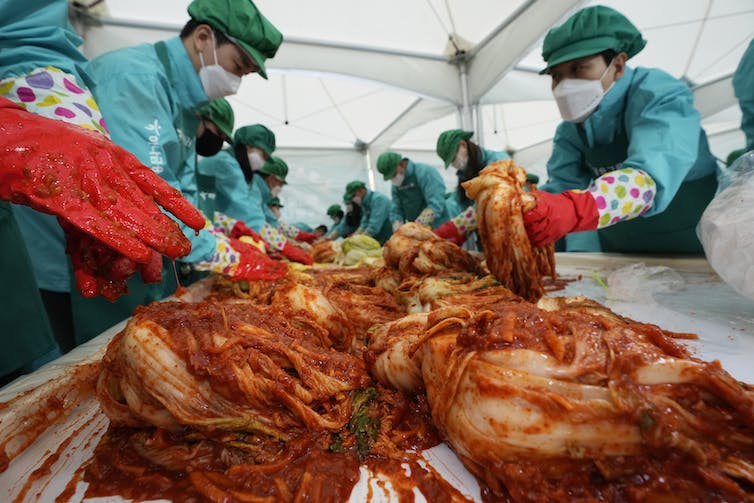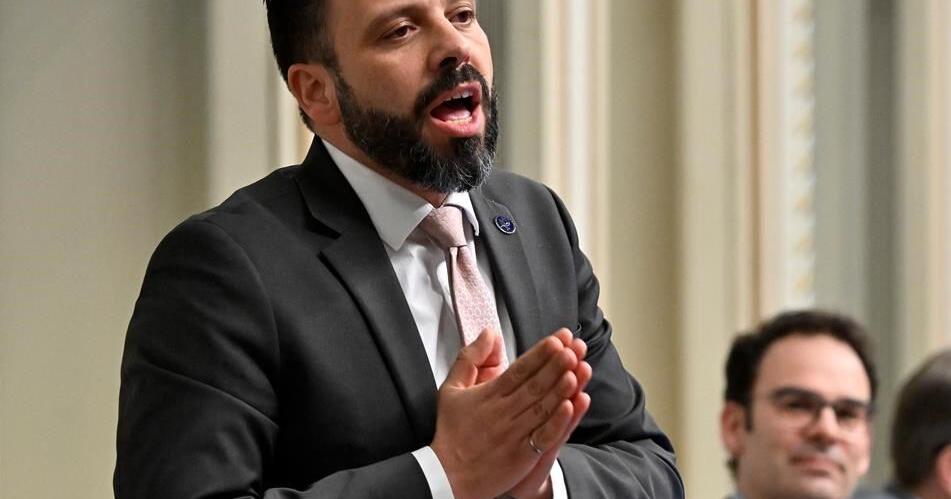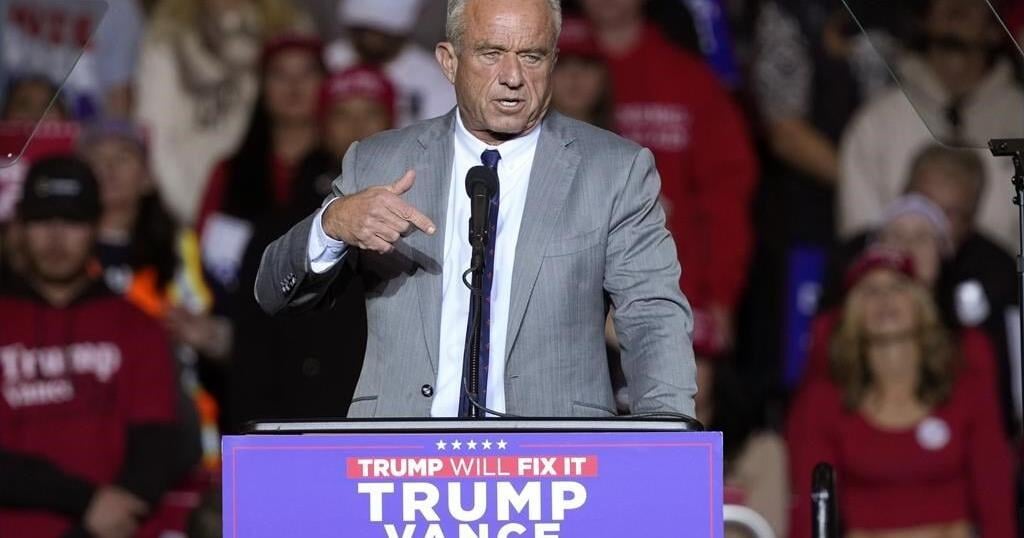RICHMOND, Va. (AP) — Democrats who control both chambers of the Virginia legislature are hoping to make good on promises made on the campaign trail, including becoming the first Southern state to expand constitutional protections for abortion access.
The House Privileges and Elections Committee advanced three proposed constitutional amendments Wednesday, including a measure to protect reproductive rights. Its members also discussed measures to repeal a now-defunct state constitutional ban on same-sex marriage and ways to revise Virginia’s process to restore voting rights for people who served time for felony crimes.
“This meeting was an important next step considering the moment in history we find ourselves in,” Democratic Del. Cia Price, the committee chair, said during a news conference. “We have urgent threats to our freedoms that could impact constituents in all of the districts we serve.”
The at-times raucous meeting will pave the way for the House and Senate to take up the resolutions early next year after lawmakers tabled the measures last January. Democrats previously said the move was standard practice, given that amendments are typically introduced in odd-numbered years. But Republican Minority Leader Todd Gilbert said Wednesday the committee should not have delved into the amendments before next year’s legislative session. He said the resolutions, particularly the abortion amendment, need further vetting.
“No one who is still serving remembers it being done in this way ever,” Gilbert said after the meeting. “Certainly not for something this important. This is as big and weighty an issue as it gets.”
The Democrats’ legislative lineup comes after Republican Governor Glenn Youngkin, to the dismay of voting-rights advocates, rolled back a process to restore people’s civil rights after they completed sentences for felonies. Virginia is the only state that permanently bans anyone convicted of a felony from voting unless a governor restores their rights.
“This amendment creates a process that is bounded by transparent rules and criteria that will apply to everybody — it’s not left to the discretion of a single individual,” Del. Elizabeth Bennett-Parker, the patron of the voting rights resolution, which passed along party lines, said at the news conference.
Though Democrats have sparred with the governor over their legislative agenda, constitutional amendments put forth by lawmakers do not require his signature, allowing the Democrat-led House and Senate to bypass Youngkin’s blessing.
Instead, the General Assembly must pass proposed amendments twice in at least two years, with a legislative election sandwiched between each statehouse session. After that, the public can vote by referendum on the issues. The cumbersome process will likely hinge upon the success of all three amendments on Democrats’ ability to preserve their edge in the House and Senate, where they hold razor-thin majorities.
It’s not the first time lawmakers have attempted to champion the three amendments. Republicans in a House subcommittee killed a constitutional amendment to restore voting rights in 2022, a year after the measure passed in a Democrat-led House. The same subcommittee also struck down legislation supporting a constitutional amendment to repeal an amendment from 2006 banning marriage equality.
On Wednesday, a bipartisan group of lawmakers voted 16-5 in favor of legislation protecting same-sex marriage, with four Republicans supporting the resolution.
“To say the least, voters enacted this (amendment) in 2006, and we have had 100,000 voters a year become of voting age since then,” said Del. Mark Sickles, who sponsored the amendment as one of the first openly gay men serving in the General Assembly. “Many people have changed their opinions of this as the years have passed.”
A constitutional amendment protecting abortion previously passed the Senate in 2023 but died in a Republican-led House. On Wednesday, the amendment passed on party lines.
If successful, the resolution proposed by House Majority Leader Charniele Herring would be part of a growing trend of reproductive rights-related ballot questions given to voters. Since 2022, 18 questions have gone before voters across the U.S., and they have sided with abortion rights advocates 14 times.
The voters have approved constitutional amendments ensuring the right to abortion until fetal viability in nine states: Arizona, California, Colorado, Maryland, Michigan, Missouri, Montana, Ohio and Vermont. Voters also passed a right-to-abortion measure in Nevada in 2024, but it must be passed again in 2026 to be added to the state constitution.
As lawmakers debated the measure, roughly 18 members spoke. Mercedes Perkins, at 38 weeks pregnant, described the importance of women making decisions about their own bodies. Rhea Simon, another Virginia resident, anecdotally described how reproductive health care shaped her life.
Then all at once, more than 50 people lined up to speak against the abortion amendment.
“Let’s do the compassionate thing and care for mothers and all unborn children,” resident Sheila Furey said.
The audience gave a collective “Amen,” followed by a round of applause.
___
Associated Press writer Geoff Mulvihill in Cherry Hill, New Jersey, contributed to this report.
___
Olivia Diaz is a corps member for The Associated Press/Report for America Statehouse News Initiative.

































